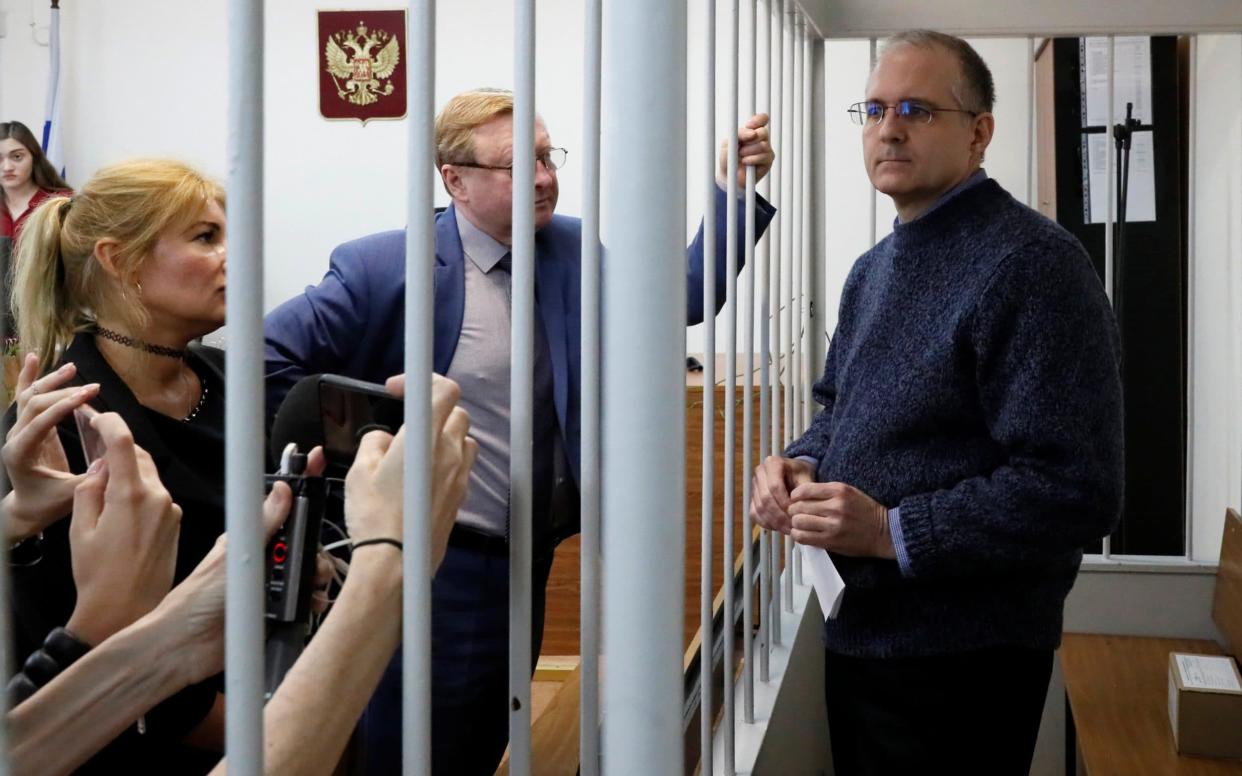US-UK citizen arrested for spying in Russia calls on Trump for help

American and British citizen Paul Whelan has called on Donald Trump for help with the espionage case against him in Russia, where he has been held since allegedly receiving state secrets in December.
Mr Whelan, 48, said in a Moscow courtroom on Friday he was a “victim of political kidnap and ransom” in retaliation for US sanctions against Russia. The former police officer and US marine added that his “personal safety has been threatened” in detention and he was being denied letters and medical and dental care.
“This is typical prisoner-of-war Chapter 1 isolation technique,” he said. “They are trying to run me down so that I will talk to them. This is Salem witch trial mentality, and I am asking the world press to go to London, to go to Washington, to go to Dublin.”
Mr Whelan was cut off by the judge entering the court to extend his arrest until August 29. His lawyer told The Telegraph, however, that he was asking for help from the Trump administration as well as the leadership of the UK, Canada and Ireland, where he also holds citizenship.
“Diplomats are helping from the United States, UK, Ireland and Canada, but he doesn't see action from US administration,” lawyer Vladimir Zherebenkov said. “That administration hasn't reacted to his arrest, even though there's no basis for the case against him. He's been under arrest for five months and no hard evidence has been presented against him. It's a political hit job because of political relations between Russia and America.”
Shortly before ambassador John Huntsman visited Mr Whelan in January in Moscow's infamous Lefortovo detention centre, secretary of state Mike Pompeo said “if the detention is not appropriate we will demand his immediate return”.
Since then the administration has remained virtually silent, and Mr Trump has not commented on the case.
The US embassy in Moscow called on Russia to stop the “futile investigation” and let Mr Whelan return to his elderly parents, “who are wondering if they’ll see their son alive again”.

Mr Whelan was rebuffed when he asked the court on Friday to withdraw the investigator from the FSB security service, which is handling his case, for allegedly threatening his life.
His allegations of “abuses and harassment” mark an escalation in rhetoric from the previously taciturn Mr Whelan, who looked thinner and more haggard than in earlier courtroom appearances.
A global security chief for Michigan auto parts company BorgWarner, Mr Whelan came to Moscow in December for a friend's wedding, relatives have said.
But security agents reportedly burst into his hotel room and seized him after he was handed a flash drive containing state secrets.
Mr Zherebenkov said his client, who had travelled extensively in Russia and befriended dozens of young men with a military or law enforcement background, believed he was receiving photographs from an acquaintance of a spring 2018 trip to the ancient cathedral city of Sergiev Posad.
He said the harsh security protocols at the detention centre were preventing Mr Whelan from seeing a dentist, receiving books and letters in English or speaking to lawyers more than once every two weeks.
Embassy officials complained that they were forced to yell at Mr Whelan from across the room when they visited.
“The FSB has isolated him to pressure a confession,” Mr Whelan's brother David tweeted on Friday.
Mr Whelan passed two rushed, cryptic messages to his family through lawyers, in which he suggested the case was related to his work for BorgWarner. The company “had to reorganize due to sanctions. A person was excluded from that company,” he wrote.

 Yahoo News
Yahoo News 
